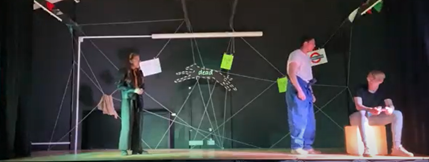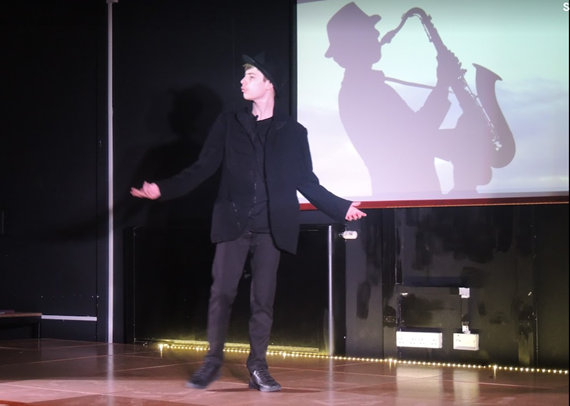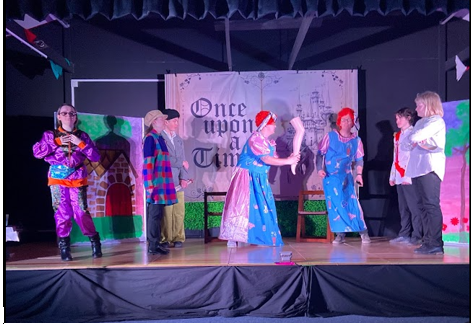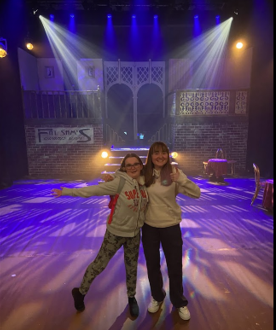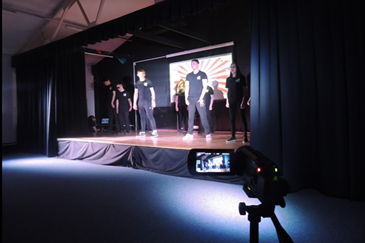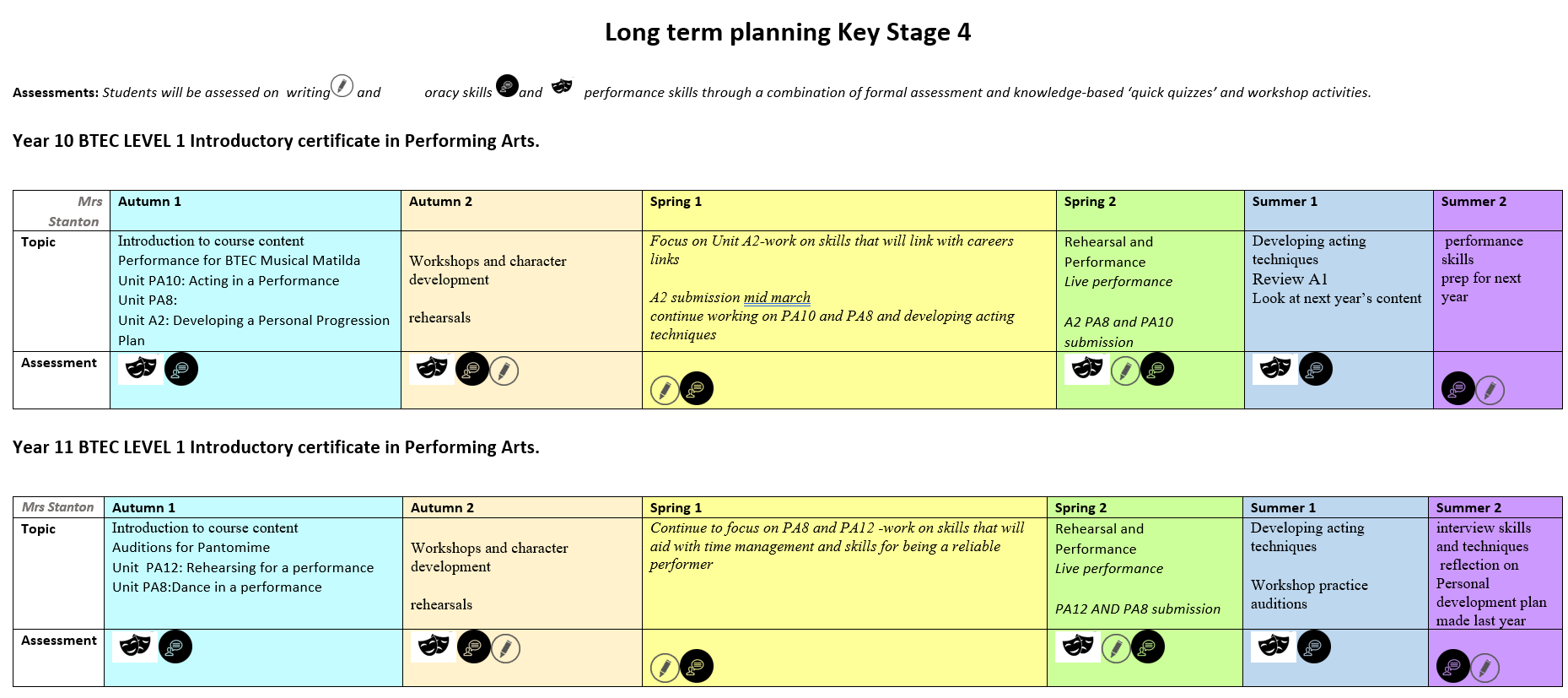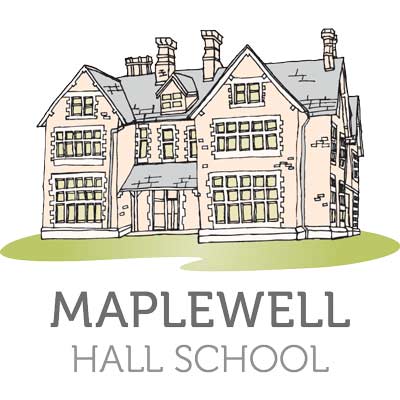Performing Arts at Maplewell aims to enable students to build confidence and transferable skills.
Students are encouraged in year 7 in a nurturing way to build resilience during Drama games and mini performances. While Performing Arts allow children to develop creative passions, it teaches language and communication skills separately, helping them build confidence when these skills are used outside the subject. Performing Arts allows for self-expression, exploring alternative options and embracing individuality.
INTENT, IMPLEMENTATION & IMPACT
Intent:
Performing Arts intends to ensure that its students acquire the essential educational, cultural, and social capital to which they are entitled. We aim to develop our student's transferrable skills and provide them with the qualifications necessary for their chosen career paths.
It is the intent that the skills learnt are nurtured and developed throughout the curriculum, and students also apply these skills to future learning covered in lessons. It is also our intent that this knowledge is grounded in the key concepts, big ideas and experimentation that allow students to challenge themselves and apply new ideas of their own.
We believe that demanding and challenging work is an entitlement to all students rather than something that is an 'addition' or an 'enrichment'. Challenges must not be rationed for a small group of 'more able' students. The intent is to "teach to the top".
Access to difficult material will be secured within lessons through talk, scaffolding, modelling, feedback and independent practice.
Implementation: Design, Pedagogy & Assessment
- Sequencing
The department has considered how topics (and lessons within each topic) are taught. Knowledge is delivered and accumulated in a logical, cumulative progression. - Building Blocks
Key strands and recurring themes are identified. The big ideas are explicitly taught to students and built on what Willingham calls 'The unifying ideas of each discipline". - Retrieval Practice
Students are allowed to revisit content. Recapping and the targeted question are used at the start of lessons to review knowledge obtained and to enable keywords to be covered. Low-stakes quizzes and knowledge organisers also assist - Adaptive teaching
In our lessons, we provide the opportunity for all pupils to experience success by maintaining high expectations for all and using teaching assistants effectively. - Assessment & Feedback
A baseline assessment at the start of each term covers two topics. - This is to establish what gaps there may be and what previous knowledge is embedded. - Literacy & Numeracy
Disciplinary literacy techniques are used to explicitly develop students' Tier one and Tier two vocabulary.
Opportunities to develop Mathematical thinking are taken in some drama games and in the language that is used. - Linking Curriculum to Careers
Time is given for students to reflect on their potential career options/pathways. Practitioners are invited to do Q&A's with students. Careers are a prominent theme within classroom practice and the classroom environment itself.
-
IMPACT: Attainment, Progress, Knowledge, Skills & Destinations
The impact of the performing arts curriculum will be assessed each year using the different data available. This data will include exam results analysis, examiner reports, emerging research, and QA. We aim to develop students’ interpersonal and transitional skills, which will help them in all aspects of their lives. If students have chosen Performing Arts as an option, they will have the chance to have career talks and advice given for the next steps for options into further education.




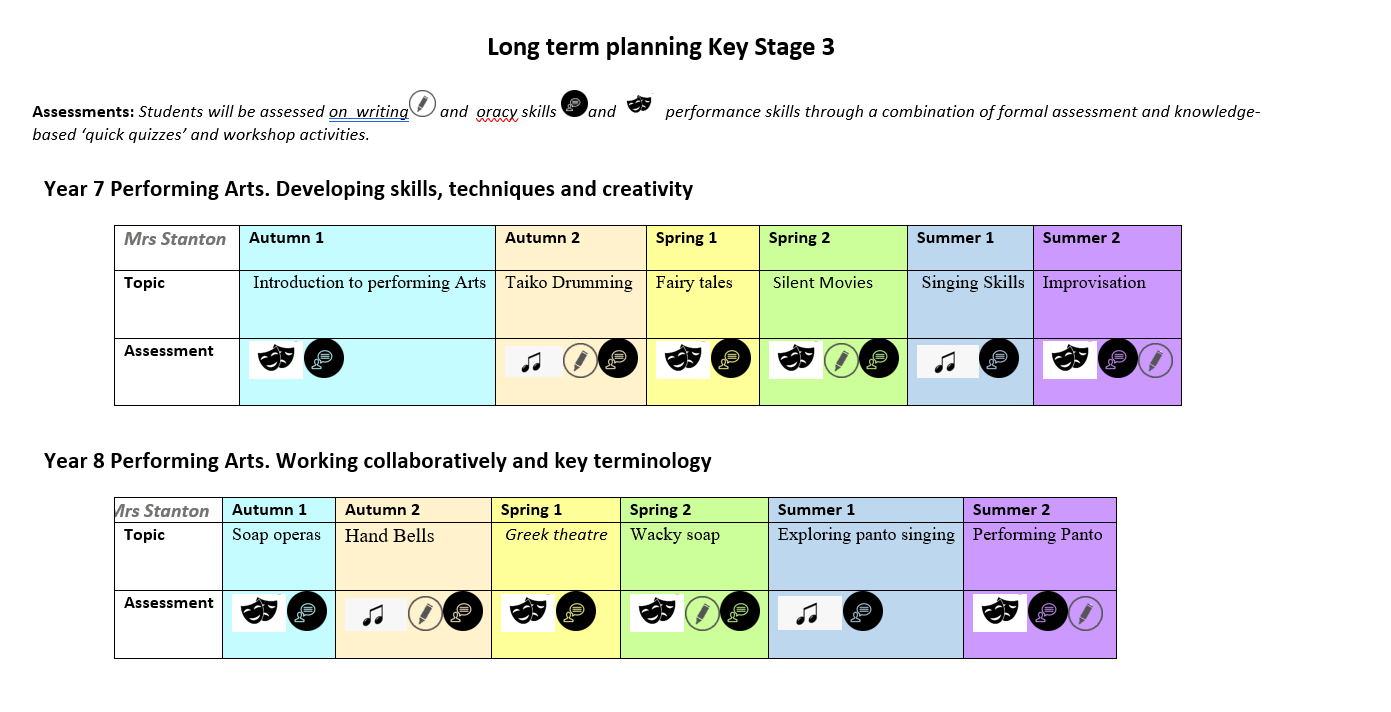
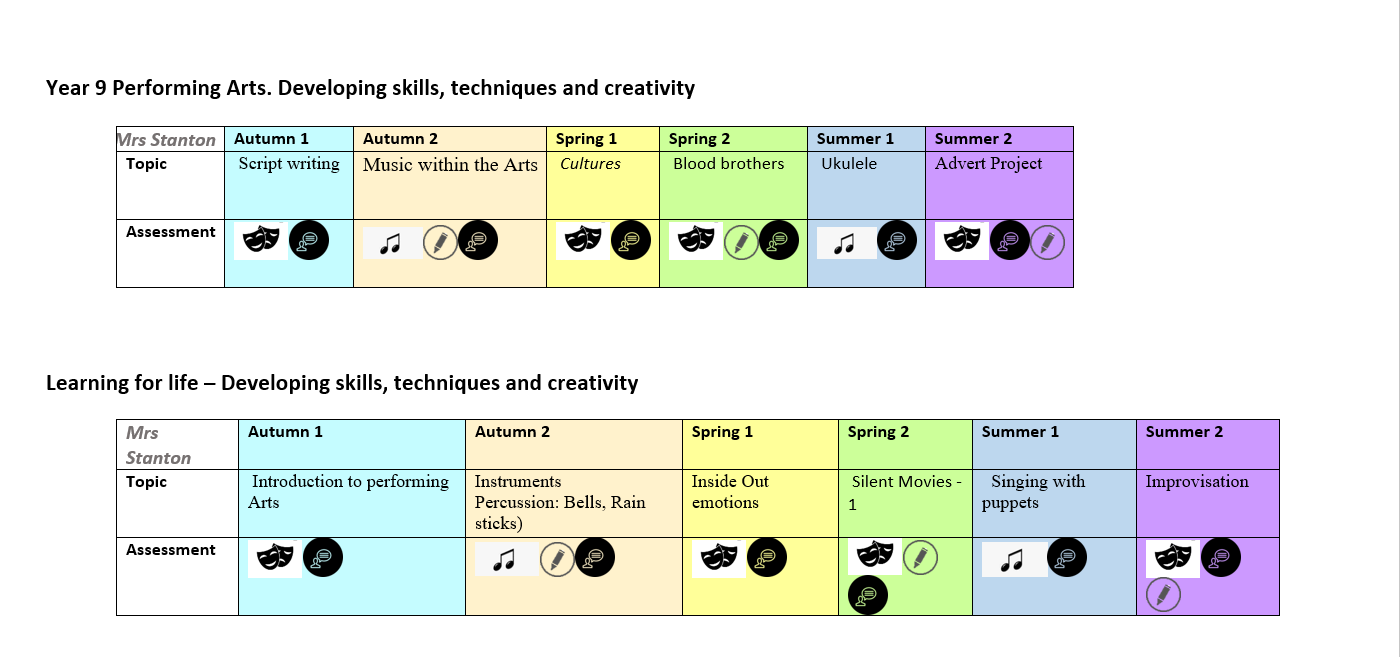
Performing Arts (BTEC)
Performing Arts can encourage students to explore their emotions, expanding their imagination and helping them develop their own unique voice. Each discipline within the performing arts sector (Acting, Singing and dance), engage the brain, body and emotions in different ways to encourage their confidence and find joy in self-expression.
The Pearson BTEC Level 1 Introductory Certificate in Performing Arts is designed around practical skills and tasks that emphasize students demonstrating what they can do rather than what they know in theory.
The qualifications allow learners to acquire and develop generic, transferable and sector-specific skills to complete tasks and demonstrate a level of achievement that enables them to progress to further learning.
Exam Board:
BTEC Pearson
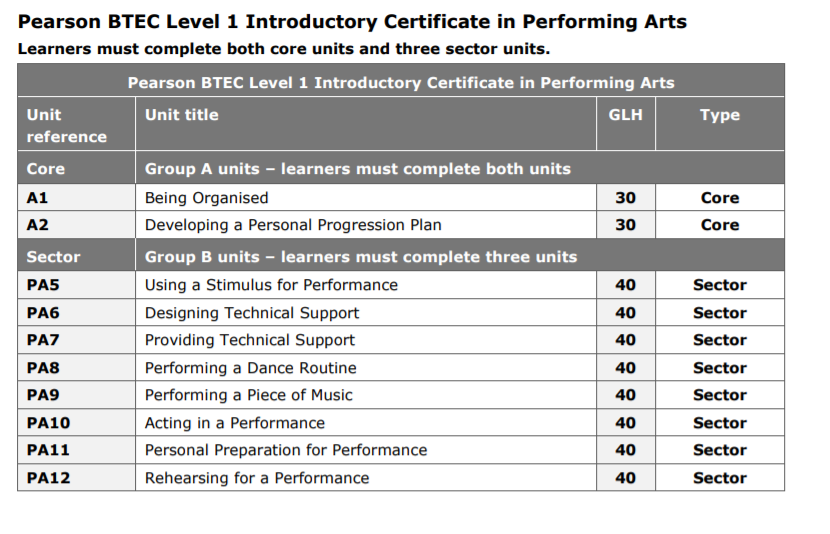
Course overview:
Students complete the following units throughout the two year course: -A1, A2, PA8, PA10, PA12
How the course is assessed:
The course is made up of units that go towards 100% coursework and this is continually assessed throughout the 2 years. This will include written information and videos of performances.
Where does it lead?
- BTEC level 2 performing arts in colleges
- Builds learners confidence and self esteem
- Practice for interviews
Additional information:
Students will take part in performances which will be ticketed events. Students will be treated as if they are working in a company and will be expected to act professionally.
